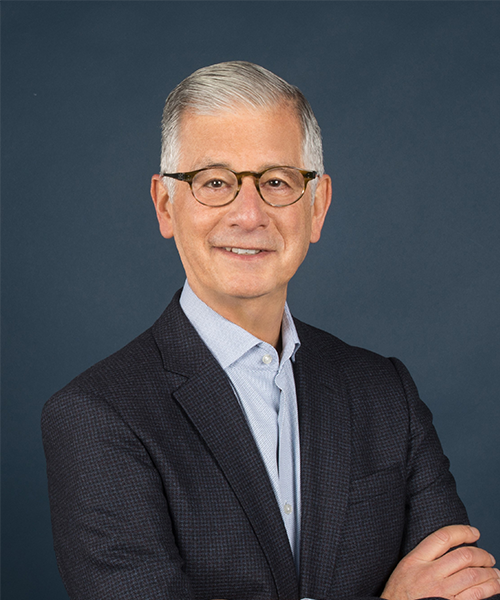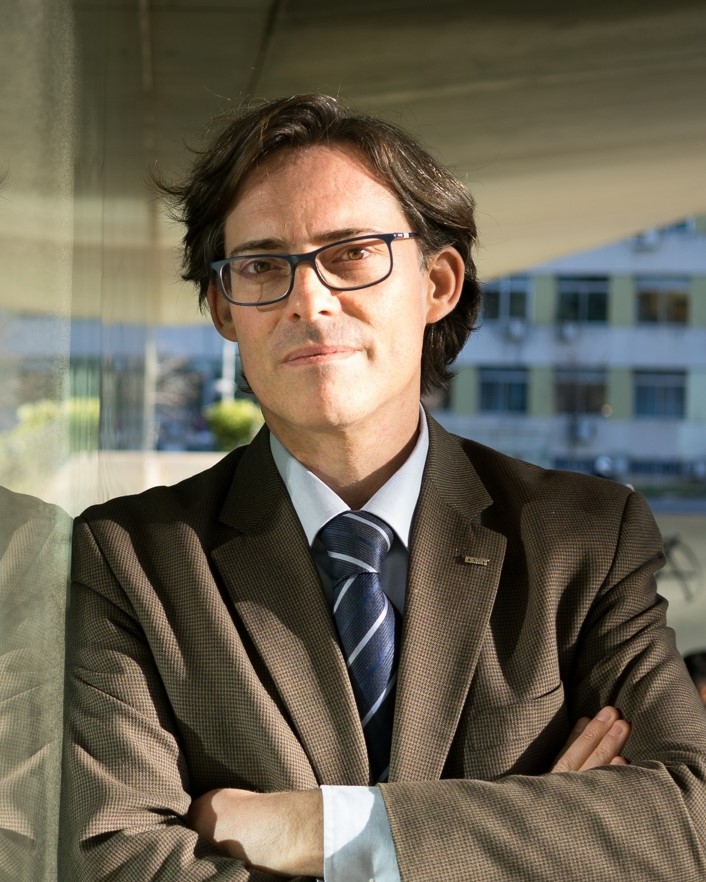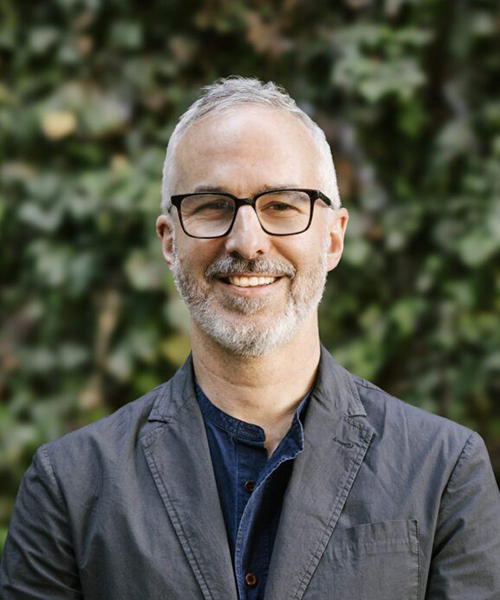Shaping Liveable Cities: A Cross-Domain Approach to Sustainable Mobility
Discover how a cross-domain approach to sustainable mobility can unlock wider urban benefits. This lecture launches a new e-publication that aims to support more holistic planning and design of liveable, people-centred neighbourhoods.
Lecture details
Shaping Liveable Cities: A Cross-Domain Approach to Sustainable Mobility
2 September 2025
3:30pm – 5:30pm
URA Function Hall, Level 5,
URA Centre, Singapore 069118
CPD points available: 2 BOA-SIA; 2 SIP; 2 SILA
This lecture has ended.

Source: joyt / Adobe Stock
Lecture Video
Synopsis
As urban challenges become more complex, cities must rethink the role of mobility – not just as a transport issue - but as a cross-domain enabler that can help tackle inter-connected urban issues such as climate change, social equity and public health.
Through the lens of the Liveability Framework and drawing insights from the Science of Cities approaches, this lecture marks the completion and launch of the CLC-CENIT research e-publication titled, “Towards Liveable Cities: A Cross-Domain Approach to Sustainable Mobility” and explores how a systems view of mobility can unlock far-reaching benefits across sectors and enhance urban liveability.
Bringing perspectives from various sectors, our distinguished speakers will examine how cities can effectively identify, measure and maximise co-benefits from mobility initiatives to support decision-making, funding and public communication processes, and shape more vibrant and inclusive future communities. This will be followed by a moderated Q&A session.
Lecture Report
Introduction
Transport planning has evolved over the years from a narrow focus on travel efficiency and time savings to understanding the broader cross-domain impacts that enhance overall liveability in a city, such as better health, environmental and economic outcomes. Sustainable mobility interventions serve as a catalyst to achieve these outcomes. Additionally, measuring and communicating these benefits are essential for fostering stakeholder buy-in for its success.
At this CLC Lecture Series, panellists Professor Stephen Goldsmith, Dr Sergi Sauri, Dr Xie Litian and Ms Ray Krishna shared how having shared narratives, communicating the benefits through data, and stakeholder collaboration and engagement can help cities better unlock the cross-domain benefits of sustainable mobility. The session was moderated by Professor Dan Hill.
CLC also launched the publication titled “Creating Liveable Cities: A Cross-Domain Approach to Sustainable Mobility” at the lecture.
Opening Remarks
Mr Michael Koh, Executive Fellow CLC, called for a paradigm shift to rethink mobility interventions within broader urban transformation strategies. While there is growing awareness on the cross-domain impacts of mobility interventions, current planning tools remain limited in capturing these impacts. Cities should build upon existing tools to capture the holistic benefits and identify the potential trade-offs of sustainable mobility initiatives early. CLC, together with the Center for Innovation in Transport (CENIT), Barcelona developed a cross-domain approach to holistically evaluate and help cities make more informed decisions when implementing sustainable mobility initiatives. The learnings from this research study were documented in the publication launched at the lecture.
Dr Sergi Sauri elaborated that the jointly developed framework aims to help cities evaluate mobility interventions by considering four main pillars—Economic, Mobility, Environmental, and Social & Health impacts. A key strength of the framework lies in the participatory approach, where stakeholders’ feedback will shape the priorities of these outcomes by assigning weightages to indicators, ultimately aimed to facilitate decision-making processes. Dr Sauri shared that the framework has been tested on the Barcelona Superblocks project and expressed optimism for the framework’s adoption by other cities.
Keynote: The Need for Integrated Governance
Drawing from his extensive public sector experience, Professor Stephen Goldsmith highlighted how fragmented governance structures prevent cities from realising the holistic benefits of sustainable mobility initiatives. Agencies often operate in silos focused on their own interests rather than adopting the systems view that residents need when making mobility choices. He noted that complex urban challenges—including mobility and sustainability issues—are inherently systemic problems requiring elevated institutional narratives to move agencies beyond their mandates towards shared goals. This requires robust leadership to establish compelling narratives, resolve inter-agency conflicts, and improve regulatory frameworks. Citing the United States Open Mobility Foundation, he outlined how integrated platforms can support data integration and systemic stakeholder mapping to negotiate appropriate value propositions for cross-agency collaboration.
Panellists and Moderator Sharing: Data-Driven, People-Centred Transport Planning
Dr Xie Litian introduced URBEX's strategic digital transformation approach enabling agile, data-led planning methodologies through geoprocessing tools for mobility analysis, including connectivity assessments. URBEX collaborates with the Land Transport Authority to democratise data collection and analytics, facilitating comprehensive transport analysis and scenario-based planning that incorporates travel behaviour factors. He shared that this collaborative modelling approach aids iterative planning processes to optimise land use and transport planning. He also mentioned that the agency is committed to expanding partnerships and building digital capabilities across sectors.
Ms Ray Krishna presented a mobility hierarchy framework—prioritising pedestrians, cyclists, public buses, then private vehicles—supported by three design principles: continuity, for uninterrupted priority mode experiences; inclusivity, focusing on safety and barrier-free design; and permeability, connecting communities through seamless crossings. She advocated for investments in active travel and public transport infrastructure alongside car-lite initiatives to encourage modal shifts. Guided by community engagement to understand the diverse needs of the population, she shared that the upcoming North-South Corridor exemplifies this planning paradigm through its prioritisation of sustainable transport modes and the introduction of several public space nodes that will feature the respective neighbourhood’s characteristics.
Setting the context of the panel discussion, Professor Dan Hill traced the evolution of streets over the years, from vibrant spaces for the community and commercial activities several hundred years ago, to car-centric infrastructure, and now towards prioritising pedestrians and sustainable transport. He highlighted Sweden's collaborative approach across agencies, private firms and communities, which generated holistic street design solutions across 25 Swedish cities. This approach was supported by a comprehensive value model to measure impacts beyond traffic efficiency, emphasising the importance of making these holistic benefits visible to foster public understanding and acceptance of alternative street configurations.
Lifting the Narrative to Bridge Understanding
The panel discussed how developing a shared narrative supported by a set of metrics can help drive decision-making processes and planning in cities. Ms Krishna emphasised the importance of having a shared narrative to get everyone on the same page, which would be useful for stakeholder engagements. Dr Sauri added that having a long-term vision for a city is critical as it helps translate complex concepts and data into accessible narratives for communication to stakeholders.
Professor Goldsmith suggested that narratives should also be translated into definite and measurable outcomes. These outcomes would differ across contexts, and the non-negotiables to be measured would depend on the objectives of the initiatives. Dr Xie shared that whilst data alone would not be reflective of on-ground experiences, analytics remain important in the iterative process of planning. Data collection needs to be further supported by lived experiences to reflect the real needs of society.
Leveraging Tools for Better Transport Planning
Panellists highlighted both opportunities and challenges in data-driven planning. Dr Xie shared that data collected by different stakeholders might be stored in different formats, impacting quality and interoperability for analysis. He mentioned the need for coherent datasets, and that URBEX is building a data governance framework to safeguard data security and privacy.
Dr Sauri pointed out the ineffectiveness of current mobility tools in capturing cross-domain impacts that need to be considered beyond just the mobility landscape. Building on this, Ms Krishna suggested that traditional land use planning models fall short in predicting future transport mode shares as future initiatives could shift people away from cars towards public transport. She emphasised that agencies and stakeholders should test various scenarios and have ideas ready for implementation by leveraging data modelling and simulations.
Professor Goldsmith highlighted that how data is communicated shapes travel behaviour. Designing systems that can bridge the information gap for residents can result in better outcomes and nudge travel behaviours in the right direction.
Harnessing Collaboration to Achieve Collective Outcomes
All panellists agreed that transport planning today requires fundamental shifts in government capabilities and coordination mechanisms. The cross-domain nature of mobility warrants the need for clear leadership and a cross-domain task force that can drive integrated solutions and collaboration across stakeholders. Cities also need to move away from top-down planning approaches towards a more collaborative and cross-sectoral model by establishing more public-private partnerships and translating solutions into clear, actionable information that enables people to make more informed choices. Given the uncertainties of the future, city governments will need to think long-term and plan proactively to address emerging challenges to achieve collective outcomes.
About the Speakers

KEYNOTE AND PANEL SPEAKER
Prof Stephen Goldsmith
CLC Visiting Fellow,
Professor of Urban Policy and Director of Data-Smart City Solutions,
Bloomberg Center for Cities, Harvard University
Stephen Goldsmith is the Derek Bok Professor of the Practice of Urban Policy at the Harvard Kennedy School and director of the Data-Smart City Solutions program at the Bloomberg Center for Cities at Harvard University. Data-Smart City Solutions highlights local government efforts in the use of data analytics with community input to reshape the relationship between government and citizens. Also under his portfolio is the Project on Municipal Innovation, a platform for cities’ senior staff to share and adapt best practices and innovative policy ideas. Complementing these efforts, his podcast, the Data-Smart City Pod, highlights top innovators and showcases how cities are leveraging data to drive innovation and improve community outcomes.
He previously served as Deputy Mayor of New York and Mayor of Indianapolis, where he earned a reputation as one of the country’s leaders in public-private partnerships and neighborhood revitalization. Stephen was also the chief domestic policy advisor to the George W. Bush campaign in 2000, the Chair of AmeriCorps, and the prosecutor for Marion County, Indiana from 1979 to 1990. He has authored and coauthored various books on cities, including his most recent two with Kate Markin Coleman, Collaborative Cities: Mapping Solutions to Wicked Problems and Growing Fairly: How to Build Opportunity and Equity in Workforce Development, both of which deal with the importance of place and cross sector partnerships. He is recognized as a leading authority on local government and applied technology. He writes regularly for Government Technology and Governing Magazines, advises technology companies that provide solutions to government, and has frequently appeared in national publications including the Wall Street Journal, Washington Post, Boston Globe and New York Times.

PANEL SPEAKER
Dr Xie Litian
Senior Data Scientist (Transport), Urban Planning & Design Technology Centre of Excellence, Urban Redevelopment Authority
Dr Xie Litian is a Senior Specialist, working at the Design & Planning Lab of URA. He is also an Adjunct Associate Professor, teaching on urban mobility modules at NUS. Dr Xie has more than 20 years of extensive experience working in the public and private sectors, covering key areas of Transport Planning, Land Use-Transport interaction Modelling, Traffic Simulation and Mobility Solutions.

PANEL SPEAKER
Ray Krishna
Head of Department,
Ramboll Mobility Singapore
Ray Krishna is Head of Department for Ramboll Mobility in Singapore, with nearly 20 years of transport planning experience. Before joining Ramboll, she co-founded a homegrown consultancy, building a strong foundation in local mobility needs and approaches.
With deep knowledge of local context and regional sensitivities, she leverages Ramboll’s global expertise to apply tailored international best practices in Southeast Asia. A strong advocate of Singapore’s transport achievements, she shares successes globally to foster two-way knowledge exchange.
Having led landmark projects across diverse transport services, Ray proudly contributes to Singapore’s car-lite journey and champions sustainable, people-centric mobility.

PANEL SPEAKER
Dr Sergi Sauri
Director of CENIT at CIMNE, Associate Professor at UPC-BarcelonaTech
Dr. Sergi Sauri has been the Director of the Centre for Transport Innovation-CENIT since 2013, an innovation unit of CIMNE. He is an Associate Professor at the Department of Civil and Environmental Engineering of the UPC-BarcelonaTech, teaching Economics at the School of Civil Engineering.
He holds a PhD in Civil Engineering from the UPC, a degree in Economics from the University of Barcelona, and a Master in Maritime Law and Business and Port Management by the UPC. His doctoral thesis was awarded the IV Prize of the Abertis Chair of Infrastructure Management. He also serves as the President of the Ibero-American Network of Universities of Mobility and Territory (RUITEM), Academic Coordinator of the Postgraduate in Smart City and Mobility Management at UPC, Director of the Master in Logistics, Transport and Mobility at UPC from 2013 to 2016, and Lecturer (part-time) at Tecnocampus, Pompeu Fabra University from 2016 to 2023. Dr. Sauri was a visiting scholar at MIT in 2008 and served as a member of the Governing Board of the College of Civil Engineers of Catalonia from 2014 to 2022. Previously, he worked as a project manager at SENER, Ingeniería y Sistemas, S.A. in transport planning and economics.
Throughout his career, Dr. Sauri has authored numerous scientific publications and led technology transfer projects, collaborating with multilateral entities, ministries, and the European Commission.

MODERATOR
Dan Hill
Director,
Melbourne School of Design
Dan Hill is Director of Melbourne School of Design, the graduate school in the Faculty of Architecture, Building and Planning at the University of Melbourne. A designer and urbanist, Dan’s previous leadership roles include the Swedish government’s innovation agency Vinnova in Stockholm, Arup in London and Sydney. Fabrica in Treviso, the Finnish Innovation Fund SITRA in Helsinki, and the UK government’s Future Cities Catapult and the BBC in London. Dan is also a Visiting Professor of Practice at UCL’s Institute for Innovation and Public Practice and a founder member of the Council on Urban Initiatives.
